Recent months have seen Pakistan and Bangladesh expelling each other’s diplomats and ‘summoning’ each other’s envoys to lodge ‘strong’ protests. The expulsions and ‘summoning’ are just the tip of the iceberg, reflective of a deeper malaise that has bedevilled the relations between the two countries.
The process of expulsion of diplomats began in January 2015 when Pakistan had to recall its diplomatic official Mazhar Khan for his alleged links with terror financing and counterfeit currency racket. Such expulsions peaked when on December 23, 2015 Fareena Arshad, second secretary (Political) at the Pakistan High Commission in Dhaka was asked to leave for her links with militant groups and terror financing. Jama'atul Mujahideen Bangladesh (JMB) operative Idris Sheikh who was arrested on November 29 in Dhaka made a confessional statement on December 6 that he had been paid by Arshad.
Pakistan Foreign Ministry first retaliated by summoned the Bangladesh envoy in Islamabad twice to lodge a protest against the “treatment meted out to its diplomat” in Dhaka. Later, on January 05, 2016 Pakistan asked Bangladesh to withdraw its senior diplomat Moushumi Rahman from the country in 48 hours, without citing any reason. Pakistan also refused to send its delegation to Dhaka for a South Asian sanitation conference. Bangladesh’s Foreign Minister said that his country would be maintaining relations with Pakistan but ominously added ‘for now.’
These expulsions were followed by staffers of both countries being picked up by the intelligence agencies and being returned after a few hours. First, on February 01, 2016 Dhaka picked up Pakistan High Commission staffer Abrar Ahmed Khan for his “suspicious movement”. Pakistan retaliated by picking up Bangladesh mission staffer Jahangir Hossain a few hours later in Islamabad. In both cases, the respective High commissioners were ‘summoned’ by the Foreign Offices and strong protests lodged.
Apart from the expulsions, there have been other incidents too that are indicative of the new lows in bilateral ties. In March 2015, PIA flight operations to Bangladesh were suspended after the Bangladeshi authorities held and then deported its station manager for smuggling fake currency; Pak media has reported about increasing difficulties for Pakistanis to acquire Bangladesh visas; in November 2015 Bangladesh banned the export of raw jute till further notice causing severe hardship in Pakistan that sources the requirement of its jute industry only from Bangladesh; disruption in the supply of jute sacks means that the storage of crop yields, especially of wheat, rice, grains, and potatoes would be adversely affected; in December 2015 Dhaka University cut ties with all Pakistani universities due to Pakistan’s condemnation of the execution of Bangladesh Nationalist Party (BNP) leader Salauddin Quader Chowdhury and Jamaat-e-Islami’s Secretary General Ali Ahsan Mohammad Mujaheed for committing war crimes.
While expulsion of diplomats are not uncommon, in the case of Pakistan and Bangladesh the causes of the low in the relationship are much deeper and go way beyond the supposed ‘undiplomatic’ activities of diplomats.
In reality, diplomatic ties between the two countries started running into rough weather once the Bangladesh government under Sheikh Hasina set up the International Crimes Tribunal (ICT) in 2010 to try those Bangladeshis who, in collaboration with the Pakistan Army, had committed war crimes during the 1971 liberation war. The relations nose-dived once Dhaka started executing such persons who were convicted by the ICT. The first to be executed was Qader Molla, Asst Secretary General of the Jamaat-e-Islami (JeI), on Dec 12, 2013. Molla was the organiser of the infamous Al-Badr, an auxiliary force of the Pakistan army in 1971 and had earned the sobriquet of the ‘Butcher of Mirpur’ for his sheer brutality against fellow Bangladeshis during the liberation war. Jamaat Senior Assistant Secretary General Mohd. Kamaruzzaman, who in 1971 was the Chief organiser of the Al Badr in greater Mymensingh region, was executed in April 2015. Jamaat’s Secretary General Ali Ahsan Mohammad Mojaheed and BNP leader Salauddin Quader Chowdhury were executed in November 2015 while the Supreme Court upheld in January 2016 the death penalty awarded to JeI Amir Motiur Rahman Nizami
The reaction in Pakistan to the executions has been ballistic. Interior Minister Chaudhry Nisar Ali Khan termed the capital punishment of Molla “judicial murder”. He claimed that the JeI leader was punished for his loyalty to Pakistan in 1971 thereby implicitly justifying crimes committed by Molla. Pakistan’s National Assembly passed a resolution condemning the hanging of Molla which it termed was done for his ‘loyalty’ with Pakistan during the events of 1971.
Following the latest executions, Pakistan lodged a strong protest with the Bangladesh envoy in Islamabad, voicing deep concerns and anguish over what it termed ‘unfortunate executions’ and that Pakistan was ‘deeply disturbed’ at this development. Once again it was the Interior Minister Nisar Ali Khan who led the attack from the front describing the execution of the opposition leaders as ‘something in total violation of international laws and morality’. He reiterated that the only crime of the opposition leaders of Bangladesh was that 45 years ago they had showed loyalty with their country and supported the constitutional government at that time. He also warned of raising the issue in the next cabinet meeting “in order to ensure that the Bangladesh government must stop politics of revenge.”
Not surprisingly, Pakistan's reaction triggered indignation in Bangladesh as supporters of the war crimes trial accused Pakistan of “resorting to falsehood” over its role in 1971 and a clear interference in Bangladesh's domestic affairs. In fact, Minister of State for Foreign Affairs Shahriar Alam said, “If Pakistan continues to interfere in our internal matters, it would be challenging for us to take the relationship with Pakistan forward.”
Underlying such a reaction is the fact that Pakistan has never accepted its responsibility for the events of 1971, let alone apologise for its conduct. Musharraf came closest by expressing regret on a visit to Dhaka in 2002. The resolution in the National Assembly in 2013 and the Foreign Office statements and actions since then are signs of Pakistan’s inability to forget the humiliation it went through in Bangladesh in December 1971. To date, this has been the darkest chapter in the annals of the Pakistan Army- defeated, humiliated, accused of perpetuating genocide on fellow countrymen, captured as POWs.
Despite attempts at rationalization by blanking out the alienation in East Pakistan from textbooks and the projection of the creation of Bangladesh as a ‘Hindu’ conspiracy, Pakistan continues to seek a plausible explanation as to why, despite being overwhelmingly Muslims, the Bengalis walked out. Since Pakistan cannot forget, it remains attitudinally bitter towards Bangladesh, seeing it through the prism of India and viewing the current PM Sheikh Hasina as hostile because she is friendly towards India.
Fuelling Pakistan’s apprehensions is the possibility that Bangladesh could start trials of the 195 Pakistani army officers involved in war crimes committed in 1971. These war criminals were sent back to Pakistan under the terms of the 1974 Tripartite Agreement between India, Bangladesh and Pakistan. Some experts feel that there is no legal bar in re-opening the investigation into the 195 Pakistani army officers.
For its part, Dhaka is still seeking closure to the terrible events that led to its creation. The genocide perpetrated by the Pakistan Army has seeped into the collective consciousness of its people. Even those born after 1971 are as passionate about it as those who lived and survived those dark days. As the spontaneous Shahbagh movement of 2013 calling for stricter penalties in the war crimes trials showed, it continues to be the single most emotive issue in the country. Hence, in Bangladesh, any interference in or criticism of the process of closure is viewed very negatively. Coming from Pakistan, this is totally unacceptable.
Moreover, there is a strong sense in Bangladesh that Pakistan was “still conspiring” against it, an impression reinforced by the activities of Pak diplomats in Dhaka. Analysts cite two examples in this regard. One is the reactivation of the JMB during the last few months, especially since September 2015. This is reflected in the killings and arrests of several JMB terrorists and the acts of violence carried out since. Worse, sophisticated weaponry and army combat uniforms seized is indicative of tactics that could pose serious problems in the country. Second, is the feeling that the recent killing of secular bloggers could be motivated by Pakistan due to its strong opposition to the war crimes trials and the strong links between the Jamaat-i-Islami Pakistan and JeI, Bangladesh. Such sentiments have been expressed by Shahbag architect Imran H Sarkar and even I & B Minister Hasanul Haq Inu.
Thus, the new low in relations is only the tip of the iceberg. Even if the diplomatic status quo were restored, the deeper cause of the antagonism between the two countries would remain till Pakistan acknowledges its role in the 1971 genocide and apologies for it. What Pakistan does not realise is that for Bangladesh, the events of 1971 are an unfinished agenda of its birth and closure will be found only when it can bring to justice those responsible for the horrific crimes committed against its people. By continuing to criticise the process and speaking out in support of those guilty of perpetuating the war crimes, Pakistan only ensures that the wounds continue to fester.
(The author retired as Special Secretary in the Cabinet Secretariat, Government of India. He tweets as @tilakdevasher1)
Published Date: 22nd February 2016, Image Source: http://www.stream.aljazeera.com
(Disclaimer: The views and opinions expressed in this article are those of the author and do not necessarily reflect the official policy or position of the Vivekananda International Foundation)

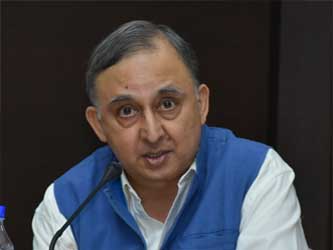

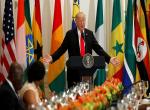

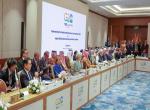
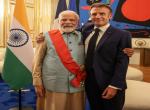

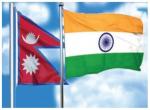
Post new comment